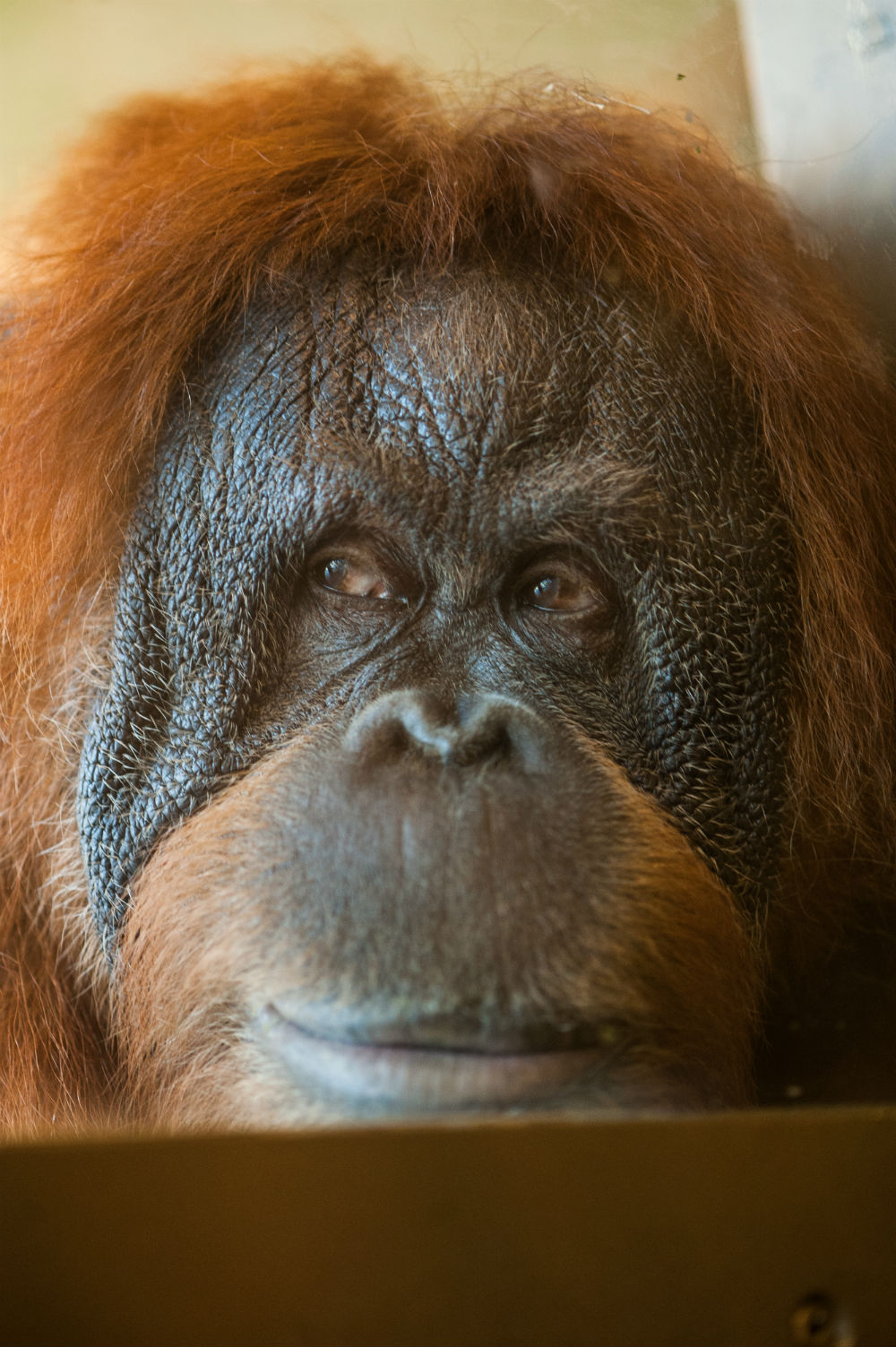Orangutans may hold the key to understanding the evolution of the human language after researchers proved that great apes can control their voice in a similar way to humans.
The scientists developed a diagnostic test to look into the active voicing in Orangutans using a musical instrument that can only be played by the player’s voice.
Researchers at the University of St Andrews worked in collaboration with University of Durham at the Indianapolis Zoo.
The findings were published on Thursday in the Scientific Reports revealing that Orangutans ares able to control their voice in a similar way to humans.
The team studied 11-year-old Rocky and 36-year-old Knobi, analysing how they used their voice to play a basic musical instrument.

The Orangutans were given a membranophone, where a player’s voice flares a membrane’s vibration through oscillating air pressure.
By giving these to orangutans, researchers were able to determine that our nearest ape relatives have good levels of voice control, allowing them to produce voiced sounds beyond their natural repertoire.
This basic capacity is what allows humans to learn the vowels of our mother tongues and the new voiced sounds of second languages.
Membranophone activation was successful within minutes after first exposure, precluding that it developed out of training or conditioning.
The research demonstrated that novel vocalisations in orangutans is indeed the product of vocal fold action and that orangutans can adjust their voice frequency and duration features rapidly and meaningfully. Therefore, voice control in great apes is only different from humans’ in degree, not kind.
Active voicing, voluntary control over vocal fold oscillation, is essential for speech. While traditionally presumed uniquely human, there is currently a growing volume of multidisciplinary data evidencing voice control in great apes.
Lead researcher Dr Adriano Lameira, from the School of Psychology and Neuroscience at the University of St Andrews, said: “Language defines human communication, but its evolution defies scientific explanation.
“Great apes, our closest relatives, may hold the key to how language evolved in our lineage. Our results provide the first positive diagnostic test of vocal production learning in great apes, namely active voicing, during novel voiced vocal production in orangutans.”
Dr Rob Shumaker Zoo President at Indianapolis said: “This important study redefines our understanding of how spoken language may have evolved. It also demonstrates that the abilities of orangutans, and likely all great apes, have been greatly underestimated.
“This new knowledge compels us to have a stronger conservation ethic at a time when all wild great ape populations face serious threats to their survival.”
The Simon Skjodt International Orangutan Center at Indianapolis Zoo is home to one of the largest groups of orangutans in any American zoo.
It serves as a vital education, research and conservation centre aimed at ensuring a positive future for critically endangered orangutans in the wild. It brings new hope to a species on the verge of extinction.